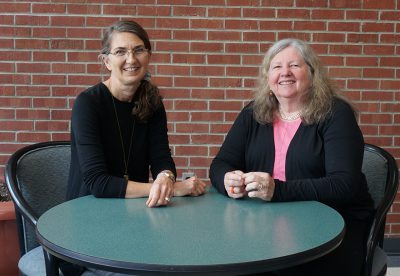Drs. Susan Ewart, Linda Mansfield and colleagues at the University of Memphis and the University of Southampton UK have been awarded $275,000 by the National Institutes of Health to investigate whether particular compositions of the gut, nasal, or skin microbiomes may increase risk of eczema and asthma, while others may decrease the risk.

A potentially life-threatening disease, asthma affects more than 25 million Americans, including more than 7 million children. While it is well-known that host-associated microbiota affects health and disease, and that early colonization of the gut with microbes educates the mucosal immune system, there is new evidence that supports a connection between the gut microbiome and airway disease.
Utilizing a long-studied group of individuals born on the Isle of Wight, UK, who were recruited at birth for monitoring the natural history of asthma and allergies, the goal of the project is to determine if the microbiome modifies how DNA is packaged and available for producing proteins—via the epigenome—which could then alter an individual’s risk for allergies and asthma. “Because the microbiome can be manipulated, targeting it would be an ideal strategy for treating, and, ultimately, preventing these pervasive diseases,” says Ewart, professor, Large Animal Clinical Sciences.
The working relationship has proved fruitful. So far, the team has found correlations and trends among dominant gut bacteria and eczema, and they have identified the two most important taxa that contribute to differences between children who have eczema and those who do not. “We have exciting data in a small sample of infants in which gut Enterobacteriaceae were robustly shown to be the predominant bacterial family associated with eczema,” says Mansfield, who is also a professor in the department of Large Animal Clinical Sciences. “Because this family [of bacteria] contains many pathogens, this result supports rational ‘smoking guns’ as mediators of events leading to allergy.”
“Each of us brings a complementary expertise,” Ewart says. “Linda has expertise in microbiota, and my background is in asthma and allergy. But perhaps the most rewarding aspect of the project is working closely with a friend,” Ewart says. “I have made friends with many collaborators, but this is the first time that I have made a collaborator from a friend.
